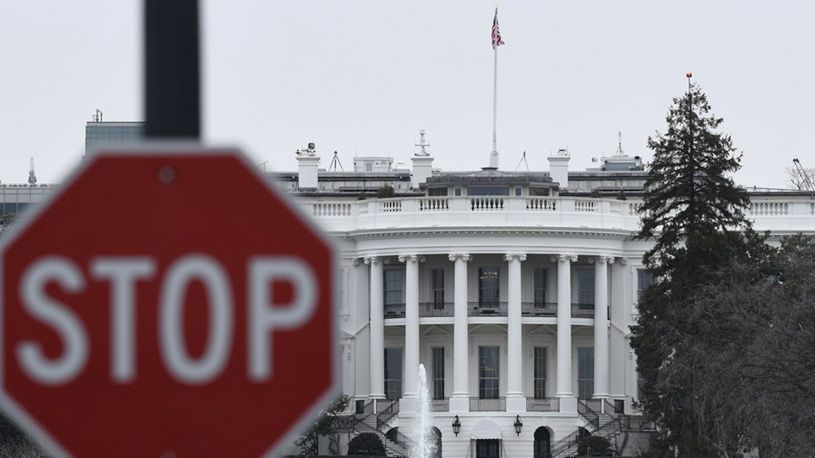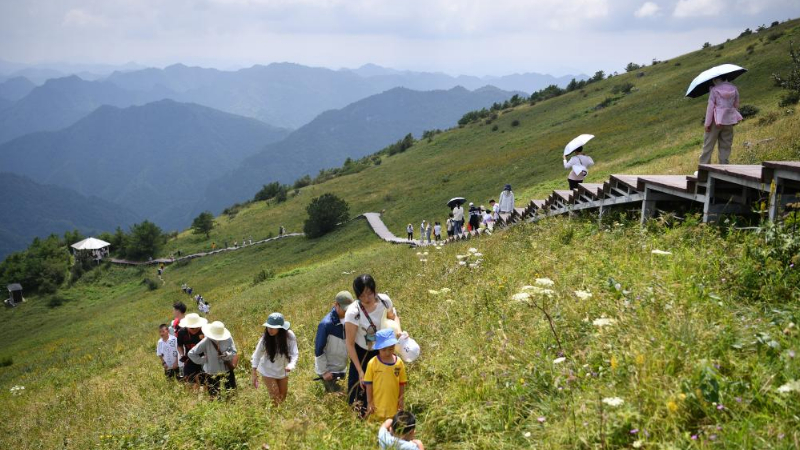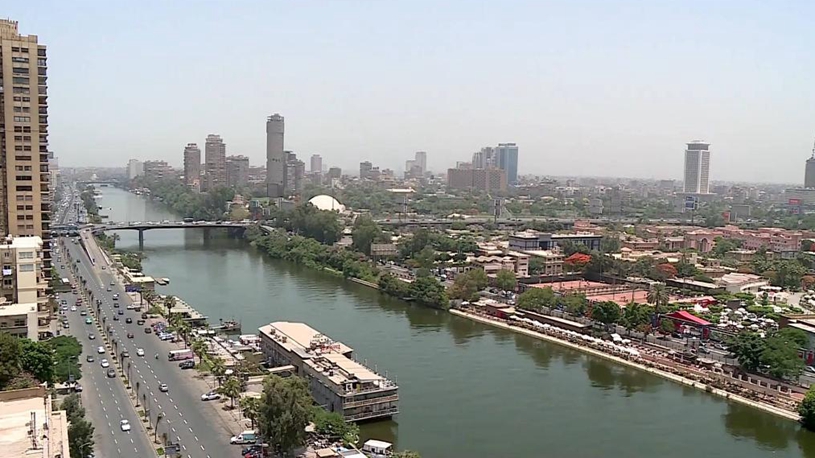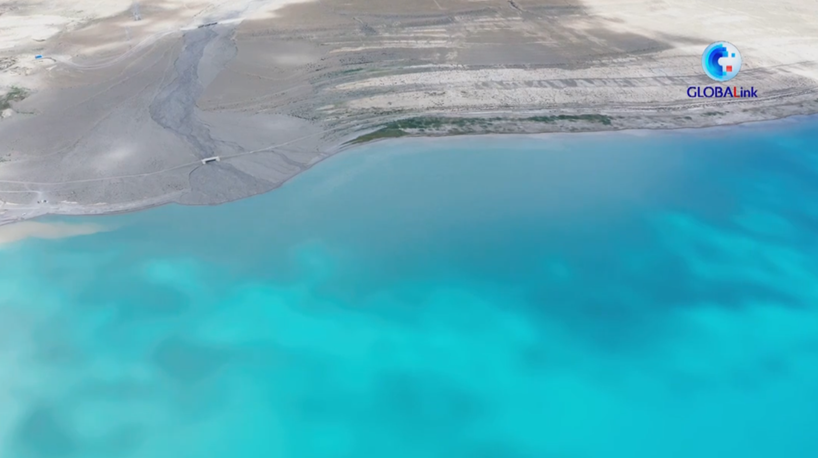* With the largest number of confirmed cases in the world, the United States has become a major epicenter of the global monkeypox. The virus has been spreading at a faster pace across the country over the past days, exacerbating its ongoing health crisis that results from the still-ravaging COVID-19 pandemic.
* After repeated warnings from health experts, the U.S. government on Thursday declared monkeypox a public health emergency. Several states have also made their own emergency declarations over the virus.
* However, the measures taken by state and federal governments have been blamed by many as too late. There is a prevailing fear that the monkeypox outbreak will turn into another public health disaster.
LOS ANGELES, Aug. 6 (Xinhua) -- During the past days, monkeypox has been spreading at a faster pace across the United States, exacerbating the country's ongoing health crisis that results from the still-ravaging COVID-19 pandemic.
The U.S. government has declared monkeypox a public health emergency, and several states have also made their own emergency declarations over the virus, hence more tests and vaccines to be ensured.
However, experts have complained that the governmental responses are too sluggish and inadequate, warning of the government's more possible blunders in the face of the new public health threat.
MONKEYPOX ON OFFENSIVE
Last month, the World Health Organization officially declared that the current multi-country monkeypox outbreak outside of the traditional endemic areas in Africa has already turned into a public health emergency of international concern.
With the largest number of confirmed cases in the world, the United States has become a major epicenter of the global monkeypox outbreak. According to the U.S. Centers for Disease Control and Prevention (CDC), as of Friday, 7,510 monkeypox/orthopoxvirus cases have been reported across the country this year.
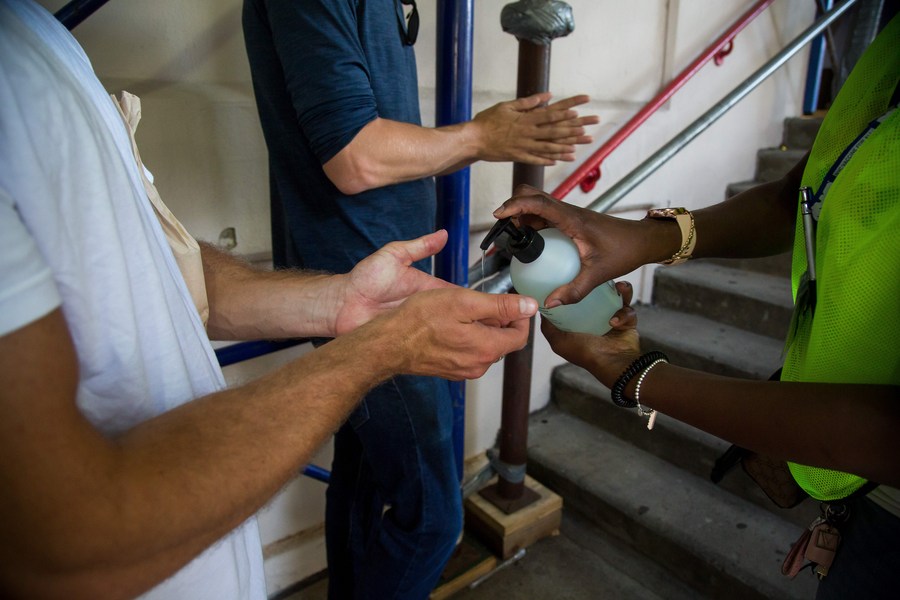
A man sanitizes his hands at a monkeypox vaccination site in the Brooklyn borough of New York, the United States, July 30, 2022. (Photo by Michael Nagle/Xinhua)
The curve of the national caseload is worrying as the number of infections has spiraled from dozens of cases a week to hundreds a day. Mounting concerns over the outbreak have forced the authorities to take further measures.
After repeated warnings from health experts, the U.S. government on Thursday declared monkeypox a public health emergency.
"We are prepared to take our response to the next level in addressing this virus and we urge every American to take monkeypox seriously," Xavier Becerra, secretary of the Department of Health and Human Services (HHS), told reporters during a briefing.
On Monday, the U.S. states of California and Illinois both declared monkeypox emergencies, following an emergency declaration made on July 29 by the state of New York.
California Governor Gavin Newsom declared a state of emergency in a statement, saying: "California is working urgently across all levels of government to slow the spread of monkeypox, leveraging our robust testing, contact tracing and community partnerships strengthened during the pandemic to ensure that those most at risk are our focus for vaccines, treatment and outreach."
Illinois Governor J.B. Pritzker declared the monkeypox virus a statewide public health emergency, and the state a "disaster area" regarding the disease.
On July 29, New York Governor Kathy Hochul declared a state disaster emergency due to the growing monkeypox cases in the state.
The three states have altogether reported nearly half of all confirmed cases in the country.
SLACK RESPONSES
On the federal level, a public health emergency can trigger grant funding and open up more resources for various aspects of a federal response. It also allows the HHS secretary to enter into contracts for treatments and other necessary medical supplies and equipment, as well as support emergency hospital services, among other things.
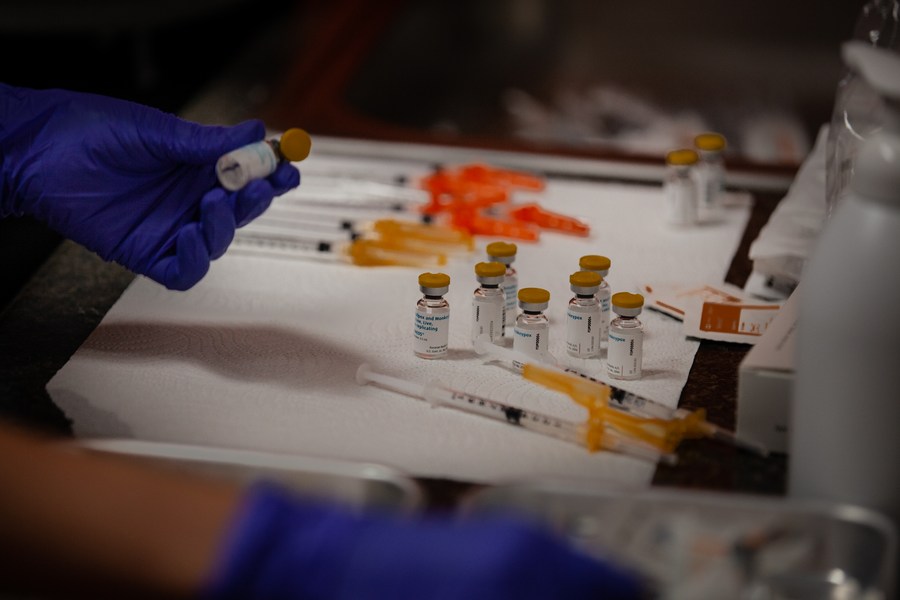
Doses of monkeypox vaccine are pictured in Chicago, the United States, July 25, 2022. (Photo by Vincent Johnson/Xinhua)
The states' own emergency declarations will also provide them with more resources to handle the outbreak. In California, the emergency declaration will help the most populous U.S. state to get an additional 72,000 doses of vaccine against monkeypox from the federal government, and enable emergency medical services personnel to administer vaccines, along with deployment of vaccine clinics through local and community organization partnerships.
The state of emergency in Illinois, which came into effect immediately and will be in place for 30 days, will allow the Illinois Department of Public Health to utilize resources for coordinating logistics across state agencies, and quickly and efficiently aid in the distribution of vaccines and in the prevention and treatment of the disease.
However, the measures taken by state and federal governments have been blamed by many as too late.
Scott Gottlieb, a former commissioner of the Food and Drug Administration (FDA), disclosed in a recent New York Times story that the CDC should expand testing for monkeypox in May, but the agency did not take this measure until late June.
The CDC should lead America's response to viral exigencies, he said, but the agency lacks the infrastructure to mobilize a rapid response and is too hidebound and process-driven to move quickly.
In a letter dated July 29 and sent to the HHS, Carolyn Maloney, chairwoman of the House Committee on Oversight and Reform, said, "the federal government must take every step possible to mitigate the threat monkeypox poses to the health of people in the United States before it is too late."
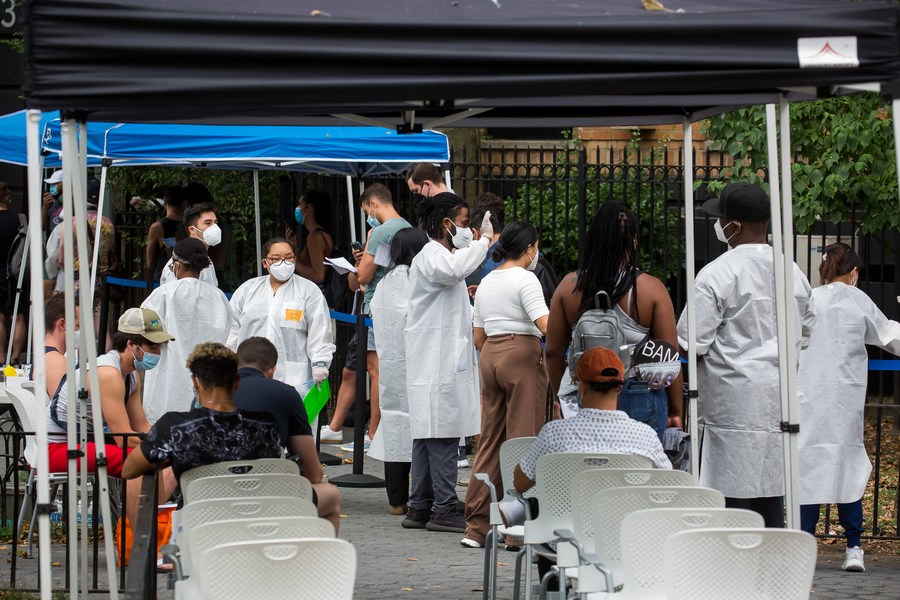
Health care workers assist people waiting to be vaccinated at a monkeypox vaccination site in New York, the United States, July 14, 2022. (Photo by Michael Nagle/Xinhua)
ANOTHER PANDEMIC?
Actually, as early as late July when the virus infected only 3,000 Americans, health experts warned the United States was running out of time to contain the monkeypox outbreak.
"We're losing daylight," Anne Rimoin, a professor of epidemiology at the Fielding School of Public Health of the University of California, Los Angeles, said last month.
"Every day that we aren't continuing to push forward on all fronts, the less likely it is that we will be able to contain it," she has said.
U.S. officials have already started to expand testing and make more vaccines available. But limited supplies have not matched the demand, health experts said.
"We are way behind in a lot of aspects, including rapid testing and access to treatment for those patients who might need treatment," Preeti Malani, an infectious disease specialist at the University of Michigan, told the National Public Radio.
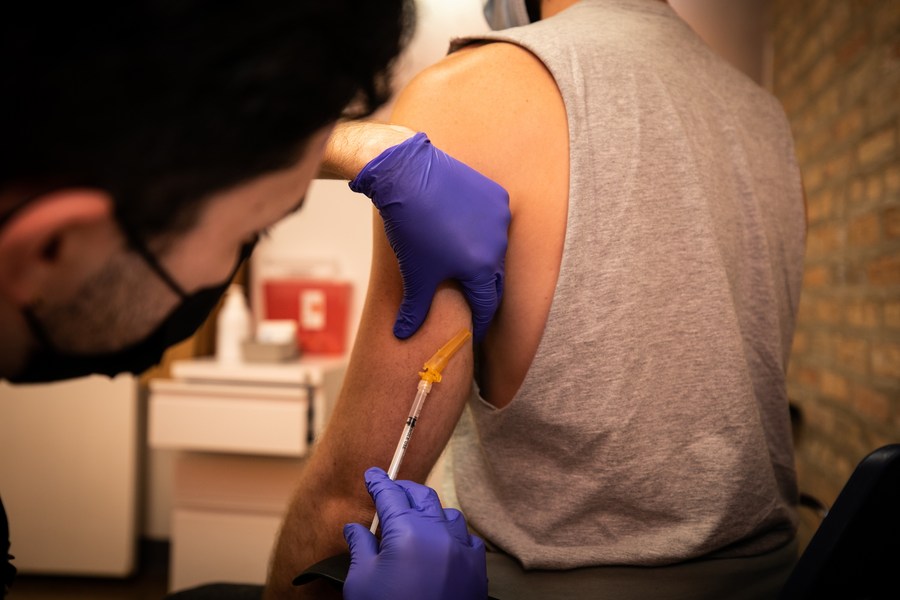
A medical worker gives a dose of monkeypox vaccine to a recipient in Chicago, the United States, July 25, 2022. (Photo by Vincent Johnson/Xinhua)
Sanjay Gupta, CNN chief medical correspondent, blamed the government's incapability of mounting a significant response to an emerging outbreak, including COVID-19 and monkeypox, on the so-called "cavalry culture," in which the administration waits for the cavalry to rescue instead of taking smaller preventive steps and acting early to head off the outbreak in the first place.
"The medical system is set up for the cavalry to come in with expensive medications and high-tech interventions, instead of providing equitable access and incentives for preventative care," he wrote in a recent story.
Given the government's botched COVID-19 responses, there is a prevailing fear that the monkeypox outbreak will turn into another public health disaster.
"This outbreak has grown to be a public health crisis in America. We are still in a very chaotic situation at the state and local level ... ," David Harvey, executive director of the National Coalition of STD Directors, told The Guardian.
Gottlieb, the former FDA official, said there are more parallels between the authorities' systemic failings to combat COVID and monkeypox, which both rest with political leaders' poor planning, lack of urgency and clumsy execution and the bureaucracy charged with countering these threats.
"Our country's response to monkeypox has been plagued by the same shortcomings we had with COVID-19. Now if monkeypox gains a permanent foothold in the United States and becomes an endemic virus that joins our circulating repertoire of pathogens, it will be one of the worst public health failures in modern times not only because of the pain and peril of the disease but also because it was so avoidable," Gottlieb warned. (Video reporters: Xia Lin, Zhang Mocheng and Huang Heng; video editors: Chen Sihong and Li Qin)■

